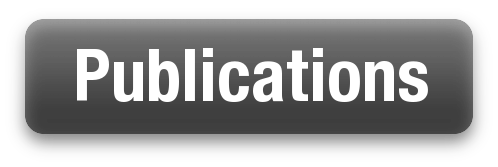 On May 20, 2014, the House passed five bills aimed at eradicating the sex trafficking of children in the United States. Prior to the passage of the bills, members of congress emphasized the increasing prevalence of human trafficking in our borders. Though many view human trafficking as only a foreign issue, the testimonies consisted primarily of stories of human trafficking in the United States.
On May 20, 2014, the House passed five bills aimed at eradicating the sex trafficking of children in the United States. Prior to the passage of the bills, members of congress emphasized the increasing prevalence of human trafficking in our borders. Though many view human trafficking as only a foreign issue, the testimonies consisted primarily of stories of human trafficking in the United States.
HR 3530: Justice for Victims of Trafficking Act of 2014
The Justice for Victims of Trafficking Act of 2014 focuses on funding programs aimed at stopping human trafficking and helping trafficking victims. There are significant changes between the Justice for Victims of Trafficking Act of 2013 and the current act. The originally introduced act created the Domestic Trafficking Victims’ Fund to be used to provide grants for services for domestic minor sex trafficking victims. The passed act instead “reauthorize the funding stream for child advocacy centers, which are often the first line of service providers for the victims” of child sex trafficking.
HR 3610: Stop Exploitation Through Trafficking Act of 2014
The Stop Exploitation Through Trafficking Act of 2014 implements Safe Harbor mechanisms into law enforcement procedures. These mechanisms treat any minor who has engaged in prostitution as if they have been sexually abused, or trafficked into their situation as opposed to criminalizing them. Safe Harbor should also direct victims to aftercare services. Without these services, a child cannot be prosecuted for trafficking, but it would not prevent victims being trafficked and repeating the cycle over again.
Safe harbor operates under the assumption that children cannot consent to prostitution. One congressman highlighted this assumption by quoting a Dallas police officer who stated, “if a 45-year-old man had sex with a 14-year-old girl and no money changed hands, she was likely to get counseling and he was likely to get jail time for statutory rape. If the same man left $80 on the table after having sex with her, she would probably be locked up for prostitution and he would go home with a fine as a john.” (Congressional Record)
There are many approaches to Safe Harbor’s implementation. Illinois requires that any child taken into custody by a law enforcement officer immediately have the Illinois Department of Children and Family Services State Central Register “commence an initial investigation into child abuse or child neglect within 24 hours.” (Illinois Compiled Statutes) Washington provides that a child is in need of services when they have met certain requirements such as a child who is “beyond the control of his or her parent” or a child who “has exhibited a serious substance abuse problem.” (Washington State Legislature)
In contrast, Connecticut uses an affirmative defense mechanism where a child may only be protected from being prosecuted for prosecution if they affirmatively raise a defense in court that they were “coerced into committing such offense by another person.” (Connecticut Penal Code Offenses) In such a case, the child will be found guilty of prostitution but will not punished. The disadvantage of this approach is that the burden of proof lies with the child to prove they have been trafficked.
HR 3610 also provides restitution for victims of trafficking offenses, makes victims eligible for job corps, and legislates the National Trafficking Hotline to “assist victims of severe forms of trafficking in persons in communicating with service providers.” The act enshrines the Polaris Project National Hotline into law given that they “have experience in providing telephone services to victims of severe forms of trafficking.”
HR 4225: Stop Advertising Victims Act (SAVE) of 2014
The Stop Advertising Victims Act of 2014 states “the law extends to traffickers who knowingly sell sex with minors and victims of force, fraud, or coercion through advertising, as well as to people or entities that knowingly benefit from the sale or distribution of such advertising.” (Congressional Record) The act provides that one must know or recklessly disregard the fact that the advertisement involved sex with a minor or another coerced individual in order to be charged.
In support of the act Congresswoman Wagner stated “government intervention is necessary to end facilitation of sex trafficking by Web sites like Backpage and others who commercially advertise this criminal activity. Companies that base their business models off of the profits made by selling sex with children should not be allowed to operate.” (Congressional Record)
Congressman Scott objected to a particular provision of the act, which allows for a mandatory minimum penalty of either 10 or 15 years for anyone involved with the advertisement of a child for sex. Scott’s main concern centered on the “scope of defendants who could be prosecuted under this bill.” He feared that, “those who are employed by a venture that benefits financially from the ad, but whose role in the organization does not place them in the chain of command with respect to acceptance or publishing the illegal ads could therefore be prosecuted under the bill.” At the conclusion of the day’s debate, however, the bill passed.
HR 4058: Preventing Sex Trafficking and Improving Opportunities for Youth in Foster Care Act
The Preventing Sex Trafficking and Improving Opportunities for Youth in Foster Care Act focuses on children in foster care that have a higher risk for being trafficked. The act provides that the child welfare system needs to reduce the amount of children in long-term foster care, and engage the child more heavily on case planning and developmentally-appropriate activities. It also supports the need for “improved identification, prevention, and intervention” for victims by programs and agencies.
The Renewal Forum believes all states should have a better, more responsive foster care system that will prevent trafficking, and address the needs of current trafficking victims. We believe that child welfare services play a key role in preventing sex trafficking of minors. The Renewal Forum will soon release a review of each state’s child protective services response to CSEC. This report offers recommendations for each state on how they can best use their child protective service agency in combatting child trafficking.
HR 4573: International Megan’s Law to Prevent Demand for Child Sex Trafficking
The House passed the International Megan’s Law to Prevent Demand for Child Sex Trafficking. Believing that it is “essential that the United States law enforcement be able to identify child sex offenders in the United States who are traveling abroad and child sex offenders from other countries entering the United States” (HR 4573) the bill creates the Angel Watch Center, which “collects and analyzes the foreign travel data of convicted child sex offenders to determine whether the notification to U.S. Officials or foreign governments is warranted.”
SOURCES
Connecticut Legislature. “Connecticut Penal Code.” . http://www.cga.ct.gov/2011/pub/chap952.htm#Sec53a-85.htm (accessed May 28, 2014).
Washington Legislature. “Washington Legislature Defintions.” RCW 13.32A.030:. http://apps.leg.wa.gov/RCW/default.aspx?cite=13.32A.030 (accessed May 28, 2014).
Illinois State Legislature. “Illinois Criminal Code.” . http://www.ilga.gov/legislation/ilcs/ilcs4.asp?DocName=072000050HArt%2E+11+Subdiv%2E+15&ActID=1876&ChapterID=53&SeqStart=16050000&SeqEnd=18350000 (accessed May 28, 2014).
United States Congress. “Congressional Hearing.” . http://www.gpo.gov/fdsys/pkg/CREC-2014-05-20/pdf/CREC-2014-05-20.pdf (accessed May 28, 2014).

 On May 20, 2014, the House passed five bills aimed at eradicating the sex trafficking of children in the United States
On May 20, 2014, the House passed five bills aimed at eradicating the sex trafficking of children in the United States


